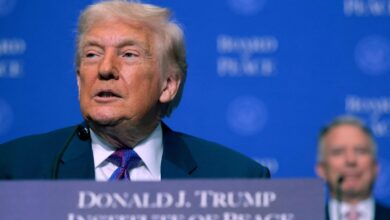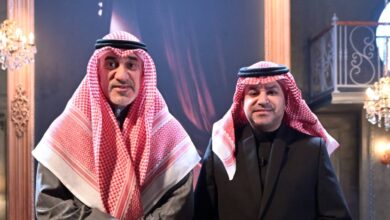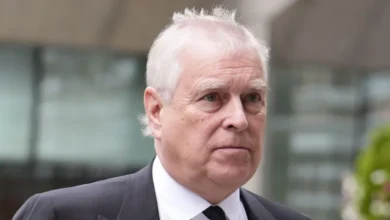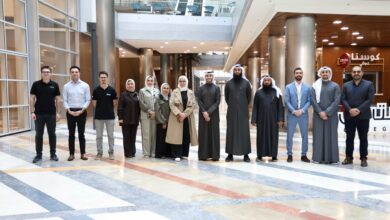
The international community views the Gulf Cooperation Council (GCC) Member States as reliable and credible strategic partners, with no hidden agendas in resolving global conflicts, said the Secretary-General of the GCC, Dr. Jassem Al-Budaiwi.
His comments came while addressing local, regional, and international media personnel gathered to cover the 45th Gulf Cooperation Council (GCC) Summit in Kuwait on 1 December. He added that the global community valued the unified foreign policy of GCC states in promoting peace and security in the region and on the global stage.
Al-Budaiwi congratulated His Highness the Amir of Kuwait Sheikh Meshaal Al-Ahmad Al-Jaber Al-Sabah on the occasion of the 45th Summit of the Supreme Council of the Gulf Cooperation Council.
He further pointed out that the upcoming summit would be held after a full year of diligent work in the joint committees in order to achieve integration among member states. He also noted that since the inception of GCC in 1981, the Supreme Council of Leaders of the GCC have held 44 regular summits, 17 consultative summits, four extraordinary summits, and six summits with non-GCC countries.
Elaborating on the economic status of GCC countries, Al-Budaiwi stated that the six countries together produce about 16 million barrels of crude oil per day and have the largest crude oil and natural gas reserves in the world. He added that the financial value of the Gulf stock markets amounted to about US$4 trillion by the end of 2023, and that the economies of the GCC countries combined are ranked 12th globally.
In 2022, the Gulf economy grew seven times more than the global economy, and the per capita share of the gross domestic product in the GCC countries is three times higher than the average per capita share globally, he said. He noted that the GCC countries have sovereign wealth funds with assets of about $4.4 trillion, or about 34 percent of the total assets of the 100 largest sovereign wealth funds in the world.
As for the GCC electricity interconnection project, Al-Budaiwi said that the project aims to address power shortage at rush times, reduce carbon emissions, and reduce the costs of establishing fiber optic networks.
He thanked Kuwait’s Minister of Information and Culture, Minister of State for Youth Affairs Abdulrahman Al-Mutairi, the head of the Gulf Weeks’ organization team Salwa Al-Qarni, and all Kuwaiti entities contributing to the Gulf Weeks initiatives
GCC Summit marks 45 years of achievement in all domains
Gulf Cooperation Council (GCC), which groups together Bahrain, Kuwait, Oman, Qatar, Saudi Arabia, and the United Arab Emirates, has witnessed over the past 43 years major achievements in various fields that reflected on Gulf citizens and leaders, as well as on regional and international arenas.
Since the first GCC summit was held in Abu Dhabi on 25 May 1981, where the council was established, the meetings contributed to strengthening the relation between the GCC countries, keeping pace with the rapid developments and exchange of expertise, and achieving the desired goals.
Gulf integration has contributed over the past decades to accomplishing the visions of the council aimed at enhancing various achievements, projects, initiatives, agreements and MoUs signed in all fields.
The council’s most prominent achievement is their unified positions on political issues of common concern, within the Arab, regional and international agendas.
Politically, the council’s most important objective during the 1980s was to maintain the security and stability of member countries by confronting the sources of instability, mainly the Iran-Iraq war, which required collective action to prevent the spread and expansion of the war.
During the 1990s, the council’s top priority was the liberation of Kuwait from the aggression of the former Iraqi regime, as it was the most serious security challenge since the establishment of the council.
Another achievement was the joint front in the dispute between the UAE and Iran over Iran’s illegal occupation of the three UAE islands of Abu Musa and the Greater and Lesser Tunbs in 1971.
In regards to the Arab action, the council consistently worked to support Arab issues, most notably the Palestinian issue, as well as Islamic issues, and to peace in the Middle East while adhering to Arab rights.
The council has also achieved various goals in economic fields, as well as enhanced the joint military actions by implementing their shared agreements.
In the field of education, the council paid great attention to the Arab Bureau of Education for the Gulf States (ABEGS), which was established in 1975 by the six Gulf states to promote cooperation and coordination in the fields of culture, education, science, information and documentation. Yemen joined the bureau in 2002
The council’s achievements include environmental work in protecting natural resources by spreading awareness through media platforms, training programs and holding environmental weeks and annual environmental forums for the youth.
Among the most important achievements in the health field are the treatment and healthcare provided to GCC citizens, the establishment of a committee to monitor medicine in the GCC, and the adoption of a unified system for managing medical waste generated at healthcare facilities.
The council has also achieved important goals in media, including the adoption of a unified media strategy, the establishment of a joint program production institution, the exchange of radio and television materials and programs, and cooperation between news agencies.
The council has also achieved judicial cooperation goals by protecting integrity, combating corruption, combating money laundering and financing of terrorism and human rights.
The GCC states have signed a number of agreements aimed at enhancing cooperation in all fields, which has enabled the Gulf countries to occupy the first positions among Arab states, as well as achieve advanced positions globally in government efficiency.

Ministerial Council Meeting held ahead of GCC Summit
Foreign Minister Abdullah Al-Yahya confirmed that the 45th session of the Supreme Council of the Gulf Cooperation Council (GCC), being hosted by Kuwait on 1 December, will cover several important topics, particularly political and economic matters.
He explained that, among others, the summit agenda will address strategic partnerships and cybersecurity, along with the completion of electrical and railway connections between GCC countries.
Ahead of the Summit, the 162nd session of the GCC Ministerial Council meeting was held on 28 November with the participation of all six GCC foreign ministers. In his keynote address to the meeting as Chair of the session, Al-Yahya affirmed that “the preparatory consultative meeting of the 162nd session of the Ministerial Council of the 45th GCC summit embodies depth of the brotherly bonds among the council member states and the keenness on strengthening unity of the Gulf states”.
He added that the meeting is a crucial step to pursue the strengthening of integration and a platform to follow up on regional and international developments that warrant deeper coordination and more unified stands. Moreover, “Today we are within grasp of a renewed opportunity to continue capitalizing on what had been accomplished, and drawing up a future roadmap for more stability and prosperity for our region,” he stated.
Minister Al-Yahya continued that the meeting coincides with a critical period in the region and the world, where challenges have been mounting and crises being aggravated, thus “we need to stand in a single line and act with the joint responsibility spirit to face the hazards threatening the regional security and stability.”
Al-Yahda alluded to, among other dramatic tragedies, the plights suffered by the Palestinian people, and renewed the principled and unwavering support for the just Palestinian cause to ensure the uncompromising rights of the Palestinian people namely their right to establish the independent state with Jerusalem as its capital.
The minister appealed to the international community to bear its humanitarian and legal responsibilities toward the unarmed Palestinian people and stop the brutal attacks on them. “We also stress on the necessity to dispatch humanitarian aid to Gaza quickly while establishing international protection for the Palestinian people.”
Al-Yahya praised efforts undertaken by the ministerial committee of the extraordinary Arab-Islamic summit and its pivotal role under the presidency of Saudi Arabia in support and recognition of the State of Palestine, as well as boosting the diplomatic and relief efforts to tackle the humanitarian crisis in Gaza,
“We cannot ignore the continuing Israeli offensives on Arab territories notably Lebanon and Syria, as they constitute blatant breach of the international law and sovereignty norms,” he said, acclaiming the cease-fire accord in Lebanon, hoping that this move would lead to implementing the UNSC resolution 1701.
Moreover, in this regard, he underscored the necessity to respect Lebanon’s sovereignty and stability, rejecting any bids to encroach upon its lands and security. “We also renew our support for Syria’s unity and stability and call for ending external meddling that aggravates conditions in the region,” Al-Yahya continued.
In comments earlier, Secretary-General of the Gulf Cooperation Council, Jassim Al-Budaiwi, stated that the ministerial meeting will review reports related to the follow-up on the implementation of decisions from the 44th summit held in Doha, Qatar in 2023.
The meeting will also discuss memoranda submitted by the ministerial and technical committees, the General Secretariat, and issues related to dialogue and strategic relations with countries and global blocs. Furthermore, the meeting will also address the latest regional and international developments impacting the region.












